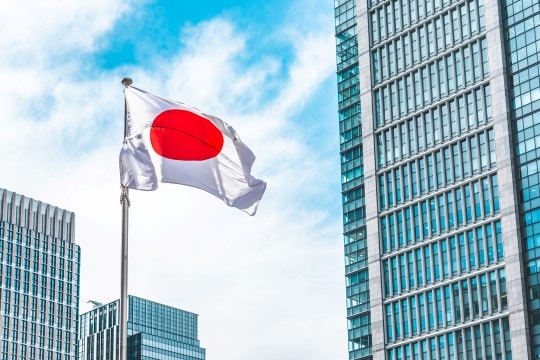- Apple Wants to Rewire Your Muscle Memory for the iPhone Fold extremetech.com
- iPhone Fold to pack Apple’s biggest smartphone battery yet, here’s how large it will be – GSMArena.com news GSMArena.com
- Apple hotly tipped to be planning a Galaxy Z…
Author: admin
-
Apple Wants to Rewire Your Muscle Memory for the iPhone Fold – extremetech.com
-

Sarah Ferguson emails to Epstein show increasing desperation – BBC
- Sarah Ferguson emails to Epstein show increasing desperation BBC
- Sarah Ferguson’s charity to close days after new Epstein revelations BBC
- ‘I’ve been friends with Sarah Ferguson for years – there’s more to come out about her’ Daily Express
Continue Reading
-
Kirkland Represents Fangzhou Jianke on its Top-up Placing | News
Kirkland & Ellis represented Fangzhou Inc. (Fangzhou Jianke, HKEX: 6086) on its issuance of 45,181,000 shares through a top-up placement. The placing was announced on January 27, 2026 and completed on February 2, 2026. Guotai Junan Securities (Hong Kong) Limited acts as its sole placing agent.
The net proceeds from the placing, after deducting all costs and expenses, amounted to approximately HK$144.3 million.
Read the transaction announcement
The Kirkland team included capital markets lawyers Mengyu Lu and Sierra Tao.
Continue Reading
-

‘I’ve Been Misinterpreted.’ Timothée Chalamet Sets The Record Straight On His ‘Quest’ For An Oscar
When you buy through links on our articles, Future and its syndication partners may earn a commission.
Credit: A24
Timothée Chalamet is heading into awards season facing his third Academy Award nomination for Best Actor, and he knows that whenever…
Continue Reading
-

China unveils humanoid 'Bolt' – video shows it's earned its name – news.cgtn.com
- China unveils humanoid ‘Bolt’ – video shows it’s earned its name news.cgtn.com
- Chinese humanoid robot ‘Bolt’ achieves speeds of 10 meters P/S, surpassing human sprinting capabilities Abb Takk News
- Chinese robot ‘Bolt’ sprints 10 meters per…
Continue Reading
-

Best Workouts for Longevity: 4 Weekly Training Schedules
Training for longevity is about fitting in different forms of movement so you can keep doing what you love for as long as possible. Research has shown speed workouts, low-intensity cardio, strength training, and mobility, can all increase
Continue Reading
-
China condemns Balochistan attacks, says it will always support Pakistan in combatting terrorism – Dawn
- China condemns Balochistan attacks, says it will always support Pakistan in combatting terrorism Dawn
- How Balochistan attacks threaten Pakistan’s promises to China, Trump Al Jazeera
- The day after Dawn
- Pakistan targets Balochistan separatists…
Continue Reading
-

Will Japanese Stocks Rally to Fresh Record Highs?
Over the last three years, Japan’s TOPIX index has generated a cumulative total return of more than 80%. Bruce Kirk, Goldman Sachs Research’s chief Japan equity strategist, says it’s getting more challenging for the country’s stocks to…
Continue Reading
-

LALAL.AI launches its first stem-splitting VST plugin
LALAL.AI has launched its first VST plugin, bringing its industry-leading stem-splitting technology to your DAW for the first time, “significantly reducing the time spent switching between workflows”.
The plugin uses its Lyra model, and is…
Continue Reading
-
Crude Picks Up As U.S.-India Trade Deal to Affect Russian Oil – The Wall Street Journal
- Crude Picks Up As U.S.-India Trade Deal to Affect Russian Oil The Wall Street Journal
- Russia says India has not said it will halt oil purchases following US trade deal announcement Dawn
- Indian refiners need wind-down period for Russian oil,…
Continue Reading